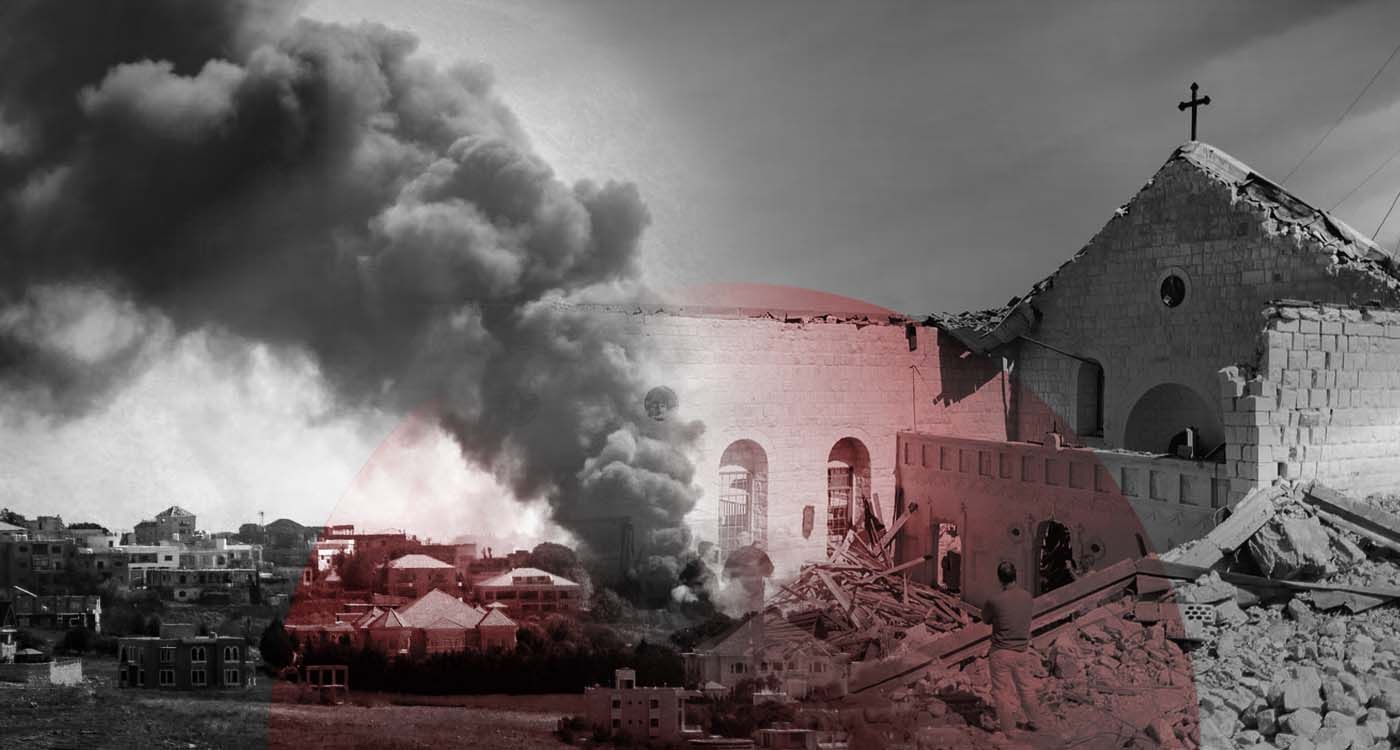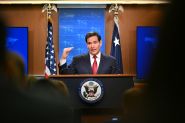
In some regions of southern Lebanon, particularly in Jezzine, Marjayoun, and Rmeish, predominantly Christian areas directly border localities where Hezbollah holds significant influence. These areas, where municipal networks, social structures, and political actors intertwine, reflect a deeply rooted sociopolitical reality shaped by geography, communal divisions, the state’s gradual retreat, and the need to maintain local stability.
Since Hezbollah opened the southern front in support of Hamas in October 2023, the delicate balance that had allowed Maronite and Hezbollah-aligned Shia villages to coexist for decades has come under severe strain. Rising tensions between the two communities are driven less by religion than by a shared and urgent question: how far should the war go and at what cost?
The fragility of this coexistence was starkly highlighted in April 2024 when Maronite Patriarch Bechara Rai and Jaafari Mufti Ahmad Kabalan exchanged sharp words. The Patriarch condemned a war that had “worsened Lebanon’s economic, commercial, agricultural, financial, and educational crises,” while the Shia cleric, closely aligned with Hezbollah, defended the so-called resistance’s actions as strategic defense to prevent Israeli encroachment on Baabda.
The exchange followed a March 2024 incident in Rmeish, a Christian village just a few hundred meters from the Israeli border, where residents blocked an armed group allegedly linked to Hezbollah, from installing a rocket launch platform. Although Hezbollah quickly denied involvement, the episode revived old fears and underscored the frustration of a population trapped in an intractable conflict.
A tacit agreement from 2006 had previously maintained stability: Hezbollah would avoid launching attacks from Christian villages in exchange for their benevolent neutrality. For years, this arrangement helped prevent escalation. However, today, political alliances have shifted, trust has eroded, and the balance has changed.
The rupture between the Free Patriotic Movement (FPM) and Hezbollah, after nearly two decades of strategic cooperation, has widened the divide further. Recent statements by FPM leader Gebran Bassil opposing “the unity of fronts” championed by the pro-Iranian axis have heightened tensions in southern communities. It is recalled that on February 6, 2006, following the July war between Hezbollah and Israel, the Mar Mikhael Agreement between the FPM and Hezbollah reshaped Lebanon’s political landscape. Today, almost nothing remains of that accord.
Forced Coexistence and the Survival Economy
Political disagreements have widened the gap among groups, yet daily life in southern Lebanon between Christian and Shia villages continues to rely on socio-economic interdependence. Agricultural exchanges, cross-border trade, and work networks remain intact. In areas where the state has largely withdrawn from providing justice, healthcare, and infrastructure, Hezbollah has stepped in as a substitute provider. Its social institutions, including Jihad al-Bina and the Islamic Health Society, operate over 80 clinics across the South and Beqaa, several in predominantly Christian areas. Local NGOs report that nearly 10% of the beneficiaries are not Shia.
While these services are often better equipped and more accessible than state facilities and help sustain the local socio-economic fabric, they also foster growing dependence. Resolving disputes through Hezbollah networks rather than official courts, seeking medical care in its clinics, or receiving social assistance from its organizations has become routine.
In some mixed municipalities, joint projects for roads, street lighting, or irrigation have been collaboratively implemented by Christian institutions and Hezbollah-affiliated networks. These initiatives help normalize a functional coexistence, seen as a guarantee of local stability for both communities.
“Here, our realities are different from elsewhere in Lebanon. We live side by side, share the same roads, the same water sources, the same concerns,” a local source told This is Beirut. Residents emphasize their desire to avoid any slide into communal conflict. “This is not a war between Christians and Shia It is a disagreement over the current war’s relevance. We want peace, not division,” added the source.
For many Christians, the relationship with Hezbollah is not ideological but pragmatic. In a fragmented country where the state is collapsing and institutions are faltering, coexisting with Hezbollah becomes a necessity, but it comes at a cost.
The first price is self-censorship: avoiding political discussions and refraining from criticizing Hezbollah, even among neighbors. Next comes the erosion of sovereignty. “When we turn to Hezbollah’s parallel structures to resolve a problem, we inadvertently strengthen a system that replaces the state,” explained a local source. Finally, social dependence takes hold: food aid, medical care, and school scholarships, all provided by Hezbollah and its satellite organizations, gradually substitute for absent public services. “We have become second-class citizens,” said a Jezzine resident. “Forced to navigate a power that does not represent us but has replaced the state.”
Hezbollah at a Crossroads
Today, more than ever, Hezbollah is keenly aware of the dangers that a rupture with the Christian population of southern Lebanon could pose and is working to maintain a climate of restraint. The group has pledged to contribute to the reconstruction and development of southern villages, including Christian communities, through Iranian funding that would be mobilized once hostilities end. For some, this promise is little more than a consolation prize after months of human and material losses.
Yet for many residents, material compensation alone will not be enough to restore trust. In a region where the wounds of past wars have never fully healed, the fragile communal balance rests on a thin thread, maintained by survival instincts and a shared sense of pragmatism.




Comments